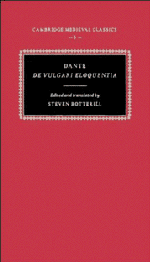Introduction
Published online by Cambridge University Press: 16 October 2009
Summary
Dante Alighieri (1265–1321) has been famous to every generation since his own as the author of the Divine Comedy – even though that title, now so indissolubly linked with his name, was coined not by Dante himself, nor even in his lifetime, but (in 1555) by an enterprising Venetian publisher called Lodovico Dolce, who presumably hoped that the addition of so striking an epithet to the flatly generic appellation Commedia would help boost sales of his new edition of the text. Revered by many and reviled by a few, but never ceasing to be attentively read and analysed even in periods (such as the ‘enlightened’ eighteenth century) that found it difficult to understand or appreciate, the Comedy has, by virtue of its enormous celebrity and influence, firmly established the image of Dante as, first and foremost, a poet. Although it consistently gives the clearest imaginable evidence of the extraordinary range of Dante's intellectual interests, and although many have consequently been tempted to see it as a kind of encyclopaedia (or, in medieval terminology, a summa) of the multifaceted reality of European culture in the late Middle Ages, there can be little doubt that the Comedy is remembered by its readers, above all, as a poem, and that the primary impression it makes is achieved through Dante's mastery – instantly recognised by his contemporaries, not to mention by Dante himself – of the resources and techniques of poetic narrative. It is, then, his achievement as a poet rather than his distinction as a thinker that has earned Dante his canonical status in the history of world literature.
- Type
- Chapter
- Information
- Dante: De vulgari eloquentia , pp. ix - xxviPublisher: Cambridge University PressPrint publication year: 1996



